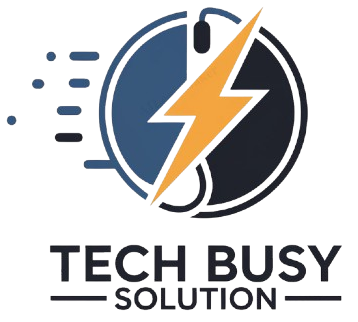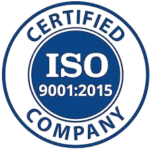
Why is MSBI Certification Course So Popular?
- High Demand for BI Professionals: Businesses increasingly rely on data for decision-making, making MSBI professionals essential.
- Complete BI Suite: MSBI covers the entire range of BI needs from data integration (SSIS) to analysis (SSAS) and reporting (SSRS).
- Microsoft Ecosystem: MSBI integrates well with other Microsoft products like Excel, Power BI, and Azure.
- User-Friendly: MSBI tools are relatively easy to learn and offer powerful features.
- Job Opportunities: With the growth in Big Data and analytics, certified MSBI professionals are in high demand across industries.
Job Roles & Responsibilities after MSBI Certification
MSBI Developer:
- Design and implement BI solutions using SSIS, SSAS, and SSRS.
- Develop ETL packages to load and transform data.
- Create complex queries, stored procedures, and reports.
- Build data cubes for analysis and business insights.
- Work with data visualization and reporting tools.
Data Analyst:
- Analyze large sets of data using MSBI tools.
- Generate reports and insights for decision-makers.
- Support ad-hoc reporting requirements.
BI Consultant:
- Collaborate with stakeholders to understand business requirements.
- Design BI strategies and implement solutions for clients.
- Provide expertise in MSBI toolset and recommend optimizations.
BI Architect:
- Design and architect enterprise-level BI solutions.
- Plan and execute data integration strategies.
- Ensure scalability and security of BI systems.
Course Objectives of MSBI Certification Course
- Comprehensive Understanding of BI: Understand the entire Business Intelligence lifecycle from data extraction to reporting and analytics.
- Master SSIS, SSAS, and SSRS: Gain hands-on experience in SSIS for data integration, SSAS for data analysis, and SSRS for reporting.
- ETL Process Mastery: Learn to create, execute, and manage ETL processes to transform raw data into meaningful insights.
- Develop Analytical Skills: Build and analyze multi-dimensional cubes and use MDX queries.
- Reporting Mastery: Design complex reports, parameterized reports, and dashboards using SSRS.
- Real-World Project Experience: Gain practical experience by working on live projects involving data integration, analytics, and reporting.
Career Growth After MSBI Certification Course
- Entry-Level Roles: Initially, you can work as a Junior MSBI Developer or Data Analyst.
- Mid-Level Roles: With 3-5 years of experience, you can move into roles like BI Developer, Data Engineer, or SSIS/SSRS Developer.
- Senior-Level Roles: With 7+ years of experience, you can become a Senior BI Consultant, BI Architect, or Data Architect.
- Long-Term Growth: Over time, you may also move into management roles like BI Project Manager, Data Science Lead, or BI Head.
Salary Expectation for a Fresher Post Completing MSBI Certification
For freshers who have completed the MSBI Certification, the average salary in India can range from ₹3.5 LPA to ₹5 LPA.
In other countries like the US, freshers may start with a salary range of $50,000 to $70,000 per year depending on the location and company.
Microsoft Business Intelligence (MSBI) consists of tools for data integration, reporting, and analytics. The course syllabus typically includes:
Introduction to Data Warehousing
- Concepts of Data Warehousing
- ETL Process
- Data Modeling (Star Schema, Snowflake Schema)
SQL Server Integration Services (SSIS)
- Overview of SSIS Architecture
- ETL Data Flow
- Creating and Managing Control Flow
- Data Transformation (Conditional Split, Lookup, Merge, etc.)
- Package Deployment and Execution
- Error Handling and Logging in SSIS
SQL Server Analysis Services (SSAS)
- OLAP vs OLTP
- Creating and Deploying Cubes
- Measures and Dimensions
- MDX (Multidimensional Expressions)
- Data Mining Concepts
- Building and Processing Models
SQL Server Reporting Services (SSRS)
- Report Design and Development
- Tabular, Matrix, and Chart Reports
- Parameterized Reports
- Subreports and Drill-through Reports
- Report Deployment
- Report Subscriptions and Security
SQL Queries and T-SQL
- Introduction to SQL and T-SQL
- Writing Complex Queries
- Stored Procedures, Functions, and Triggers
Data Warehousing Projects
- Real-world Data Integration Scenarios
- Project Work on SSIS, SSRS, and SSAS Integration

